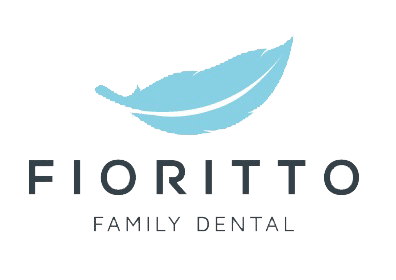Sleep Apnea
Everyone knows that eight hours of sleep per night is considered ideal, although we all vary slightly in how much sleep we need to function at our peak. Unfortunately, a condition like sleep apnea can cause you to awaken dozens of times per hour because you stop breathing.
You might not even know it’s happening – many people don’t. These waking episodes, known as micro-arousals, take just enough time to get you breathing again and you immediately fall back asleep. However, you won’t get the rest you need, and likely, your sleep partner won’t either since you may fall silent when you stop breathing and then gasp, choke, or snore loudly as breathing resumes.
What is sleep apnea and what are the different types? How can the dentists at Fioritto Family Dental help to correct your sleep apnea and improve your nightly slumber?
What is Sleep Apnea?
This sleep disorder is characterized by repeated periods of cessation of breathing during slumber. When this occurs, the brain signals the body to wake and begin breathing again. In serious cases, you may stop breathing dozens of times per hour, and cessation of breathing could last for several seconds.
Men are more likely to develop sleep apnea, and the condition is often linked to being overweight or having a large neck circumference. Heredity, age, a narrow airway, smoking, and other factors could play a role, as well.
There are three types of sleep apnea: obstructive, central, and complex. Obstructive sleep apnea is the most common type, occurring when the muscles of the throat relax and soft tissues collapse, blocking the airway.
Central sleep apnea has to do with a lack of signals between the brain and the muscles that control breathing, causing breathing to stop when you fall asleep. Finally, complex sleep apnea is a combination of the two.
The most common symptoms of sleep apnea include loud snoring and cessation of breathing during sleep, although these typically won’t rouse the sufferer into complete wakefulness. Often, they are reported by a partner. Other symptoms could include dry mouth and headaches upon waking, as well as symptoms of sleep deprivation like fatigue, inability to focus, and irritability, for example.
The Benefits of Dental Appliances
The big question is: why contact an expert sleep apnea dentist? In some cases, a custom dental appliance may offer some relief. This device is designed to be worn all night and it positions the jaw in such a way that the throat is prevented from collapsing when it relaxes, helping to keep airways open and allow for unobstructed breathing. Unfortunately, this won’t solve central or complex sleep apnea, but it could provide some relief for those who suffer mild to moderate obstructive sleep apnea.
At Fioritto Family Dental, we’re happy to design and create a custom oral appliance to help you correct obstructive sleep apnea, or refer you to outside specialists for additional assistance if further measures are needed. Contact us today at 440-951-5511 or online to schedule an appointment to speak with an experienced sleep apnea dentist.

